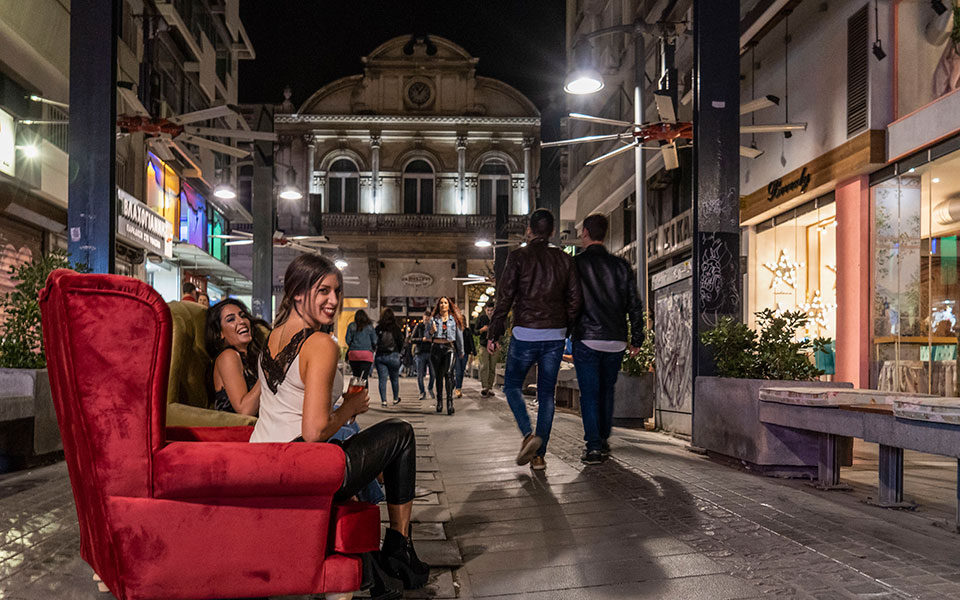At the start of this decade, the number of overnight stays in Thessaloniki came to approximately 450,000 per year. Visitors would take a tour around the Rotunda, the statue of Alexander the Great, the White Tower and Aristotelous Square; they would recharge their batteries on the beach, and then depart, taking a few bougatsas, the local custard pies, with them.
As the end of 2018 nears, Greece’s second largest city can lay claim to a very different tourism status, having developed into one of the most fascinating city break destinations in southern Europe. Overnight stays in all types of lodgings keep increasing year after year; for the period January-September 2018, they reached 2.59 million.
The surge in Thessaloniki’s popularity is evinced by hard numbers in terms of flight connections as well. German carrier Lufthansa has just returned to the city after a 17-year absence, while a few months ago there was a significant overture to the Arab world when Thessaloniki became directly linked to two of the biggest air transit hubs in the Middle East via Qatar Airways and Flydubai.
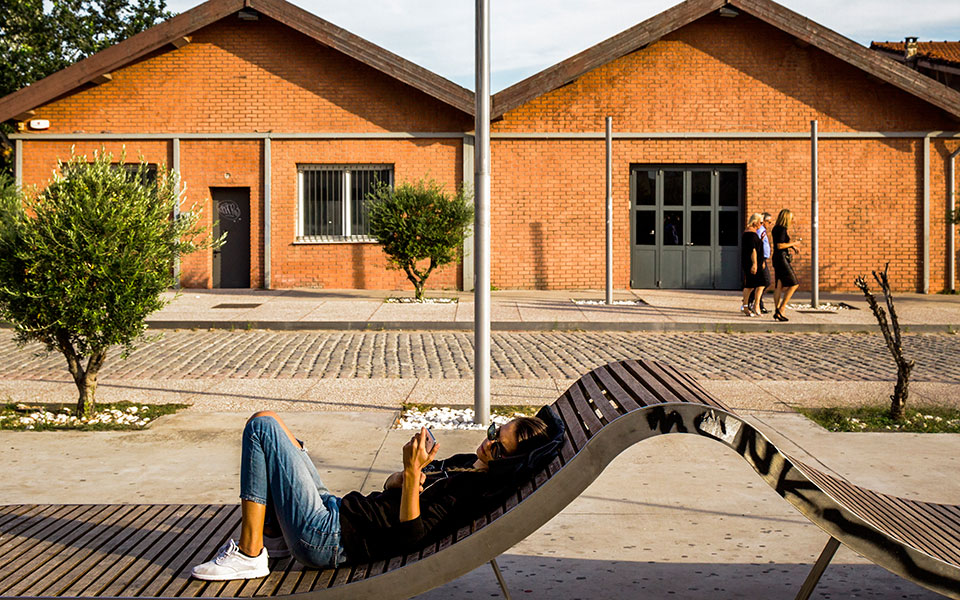
© Perikles Merakos
What’s more, a visit to Thessaloniki is no longer just about ticking off the standard classics on the tourist path. The city has become attractive for its highly sophisticated gastronomy, its modern cafés and small bars, its intimate and contemporary museums, the numerous Byzantine, Ottoman and Jewish monuments that are scattered throughout, the aura of nostalgia of the Ano Poli (Old City), and the youthful vibes in the fast-evolving Ano Ladadika district.
It’s telling that more than half of the visitors in the 18-50 age group state that their main reason for choosing the city is its distinct personality. In winter as well as in summer, it has an al fresco culture and a laid-back atmosphere. To feel it, a visitor has only to go and spend a little time one afternoon on the docks of one of the largest commercial ports in southeastern Europe, mingling with locals who use this vibrant seafront spot to clear their minds of humdrum worries while they enjoy the technicolor sunset.

Highly Rated and Ever-Evolving
The abundance of entertainment options, the welcoming attitude of the locals and the significance of the cultural sites were all facets for which foreign travelers praised Thessaloniki in 2017, giving it, on average, an 8 out of 10 rating, according to an international survey carried out by the International Hotel and Restaurant Association (IHRA).
Another important factor that makes Thessaloniki attractive is its reputation as a safe and budget-friendly city. Even after the slight increase in the average hotel room rate in 2018, it remains the most affordable destination when compared with popular European cities of a similar size, such as Antwerp, Cologne, Edinburgh and Hamburg.
Over just the past few months, old buildings in the city center have been transformed into modern, minimalist boutique hotels embodying a style of casual luxury; these include the Modernist, which is housed in a 1920s building; Bahar, whose building has been characterized as a Work of Art by the Ministry of Culture; and Superior One, which is housed in a four-story neoclassical building.
Joining the new hotels that have opened this year in the center will be two more belonging to the Marriott Hotels Group, as well as ventures by the Tel Aviv-based design hotel brand Brown Hotels and the Panama-based international hotel chain Selina. The last promises to bring to Thessaloniki the next big trend in hospitality, namely modern spaces for overnight stays that lack luxury facilities but that can serve as connecting points for global nomads.
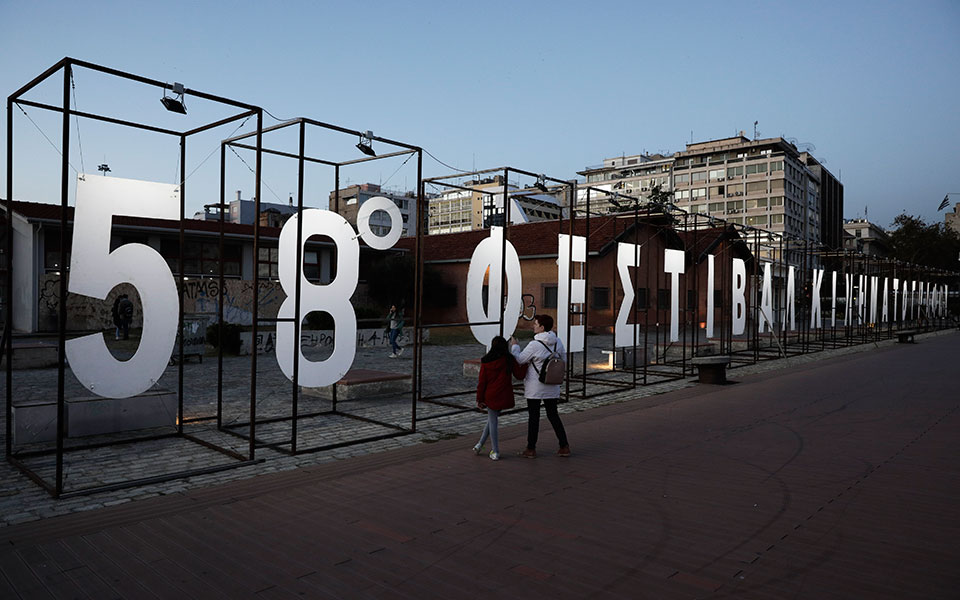
© Konstantinos Tsakalidis
Chronologically, the city’s tourist expansion coincided with the rise of two global trends in the industry: a shift in travelers’ preferences away from vast capital cities and towards smaller-scale urban centers, and the development of the “live-like-a-local” experience. It was only natural that Thessaloniki, a city that’s easy to walk around and has always been welcoming and open to everyone, should become even more popular.
Mayor Yiannis Boutaris played a pivotal role in the redevelopment of the city’s profile. A successful businessman (he founded the Kir-Yianni Winery), the mayor did something that had never been done before: he drew up a strategic plan for tourism. His overtures towards the Jewish community, and the prominence he gave to Thessaloniki’s Jewish heritage have resulted in a 100 percent increase this year in the number of tourists from Israel, who maintain a strong lead among foreign visitors in terms of overnight stays.
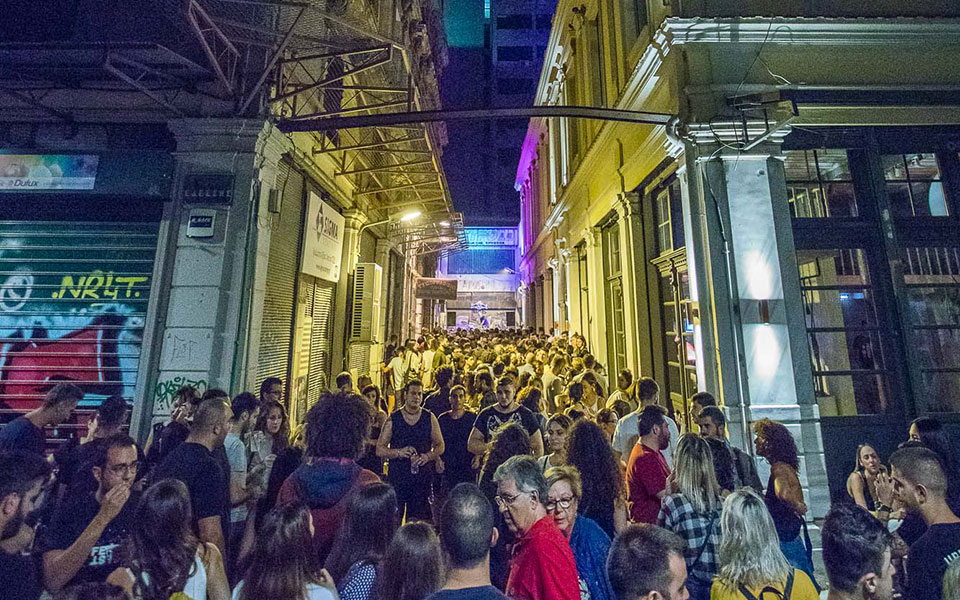
Thessaloniki’s conference tourism has also grown exponentially – in 2017, 272 conferences were held. And among this year’s highlights are world-class events such as the Europe Congress’ MCE South Europe Forum, the 8th UNWTO International Meeting on Silk Road Tourism (the first to be held in Europe), the Ecocity Forum and the 13th European Evaluation Society Biennial Conference.
“Thessaloniki has a particularly competitive edge now with regard to conferences, since it has the capacity to receive a great number of people at value-for-money prices. The next step is to spread this developing momentum across other entrepreneurial sectors: to IT, to creative communities and to education (since we’re a university city and the educational hub of southeastern Europe), and also to tourism focusing on gastronomy,” says Deputy Mayor for Tourism Spiros Pengas.
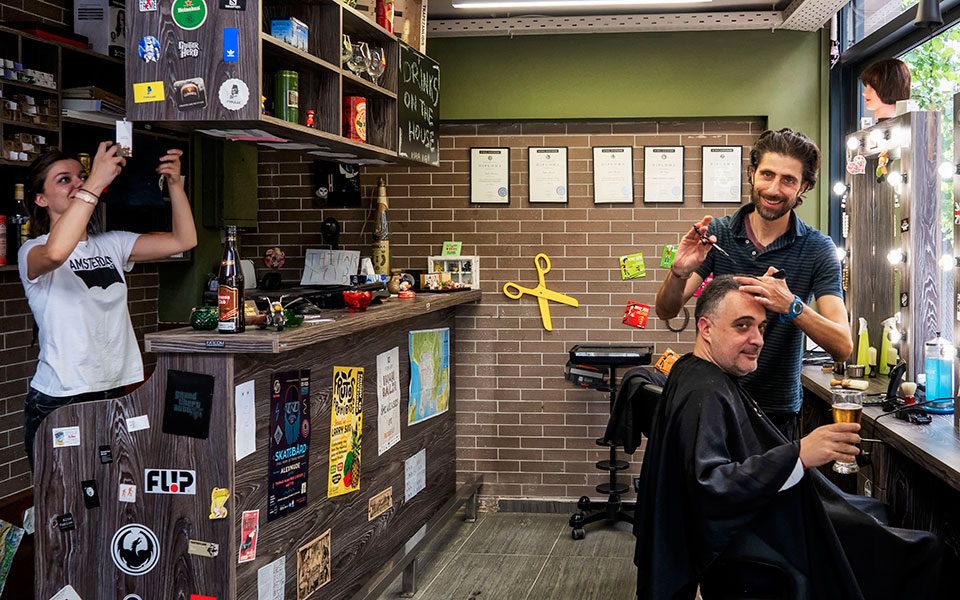
© Perikles Merakos
Eat Well, Drink Well
Food is certainly another reason why Thessaloniki is a particularly attractive destination. Many new restaurants focusing on modern Greek cuisine have opened recently, while a new trend in the city’s gastronomy is the promotion of street-food culture by restaurants and food businesses, with examples including the brand-new Tarantino and The Bird, which focus on slow-cooked street food.
Entirely new this year are the private cookery projects curated by Greek chefs and hosted on the premises of cutting-edge wineries and even in private homes. Last December, two local chefs, Andreas Klavdianos and Sissy Karanikolidou, opened UMA, transforming the living room of their home into a space for private dining. “We have a dining room where we can receive 12 guests. Our philosophy is based on hospitality and privacy. Thessaloniki is a small city where everyone can see you, and this is a way to be alone and to enjoy custom-made menus of food, drink and music,” notes Karanikolidou.
The Third Wave of Coffee has also arrived on the shores of the Thermaic Gulf. “Coffee is a ritual. The trend today is for sophisticated brews of coffee served in style,” says Nikos Evangelopoulos of Local Café, where patrons can enjoy cold-brew coffee poured over ice made from reverse osmosis water. Chrimatistirio Square and Emporio Square offer a number of drinking establishments, including the quirky Hair Pub, where you can combine your evening out with a haircut.
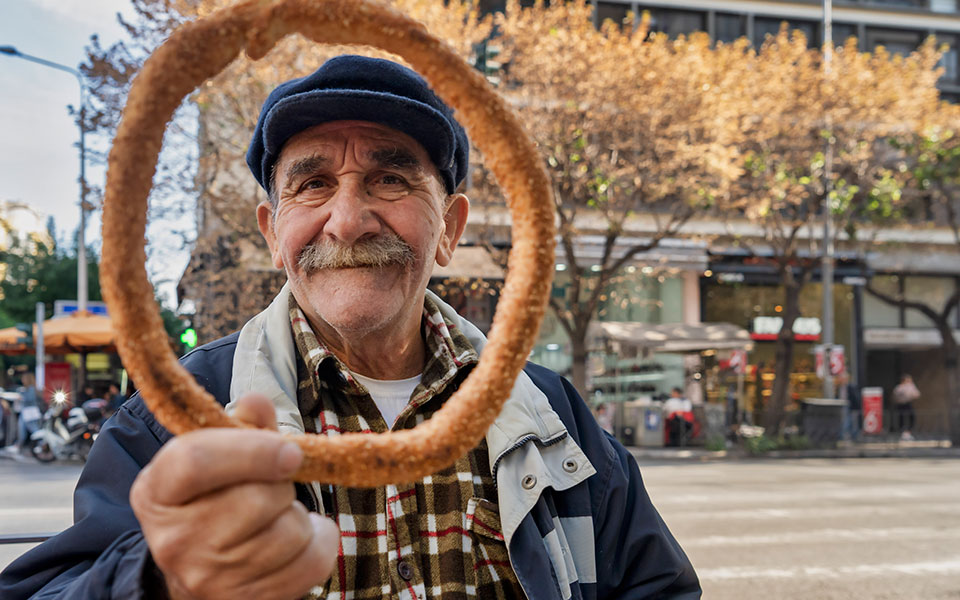
© Perikles Merakos
Hotels have joined in the action with the Thess Brunch, a collective initiative whose many activities include a whimsical photography contest starring the koulouri, Thessaloniki’s traditional sesame bread ring; Instagrammers are uploading images that include the treat under the hashtag #koulouriofthemonth.
“Thess Brunch emphasizes the role that hotels can play in giving prominence to Thessaloniki as a capital of gastronomy. Orizontes Restaurant embraced the initiative from the start. Tourists as well as local residents can now discover new taste experiences, as well as traditional products,” remarks Yiannis Anthoulidis, manager of Electra Palace Hotel.
Since 2016, the city’s gastronomic achievements have also been the theme of festivals attracting gastro-tourists and foodies from the Balkans and the rest of Europe. Two of the most popular ones, attracting almost 70,000 visitors each, are the Beer Festival and the Street Food Festival, both organized by SoulFood Thessaloniki.
Festivals, Museums, Parties and More
Not everything, of course, revolves around food. There is always the Thessaloniki International Film Festival, and there is constantly something going on throughout the year, such as the Reworks Festival, a leading music event that attracted 20,000 visitors from 27 cities this year, hosting celebrated electronic music artists such as Laurent Garnier; or the Taratsa Film Festival, which transforms roof terraces into open-air cinemas.
The European trend towards mobile parties can be indulged in Thessaloniki, too. “This city thirsts for new things. We’ve made use of local features, the fine weather and the sunshine to offer people the opportunity to enjoy themselves outside during the afternoon hours, rather than later at night in some dark basement,” says Ioannis Pateliotis, the events manager of the team Street Outdoors. “This results in generally lower levels of alcohol consumption without any dip in customer satisfaction.”
The timelessness of the city is to be found in all its glory in the archaeological sites and its 30 museums and cultural venues. This winter, one can see avant-garde exhibitions such as that of the magnificient collection of Alexander Iolas, at the Macedonian Museum of Contemporary Art, or listen to the Vienna Chamber Orchestra at the Thessaloniki Concert Hall. As the concert hall’s artistic director George-Emmanuel Lazaridis points out, the venue has managed to become a major destination in its own right for visitors from the Balkans, thanks to the many international productions that it hosts.
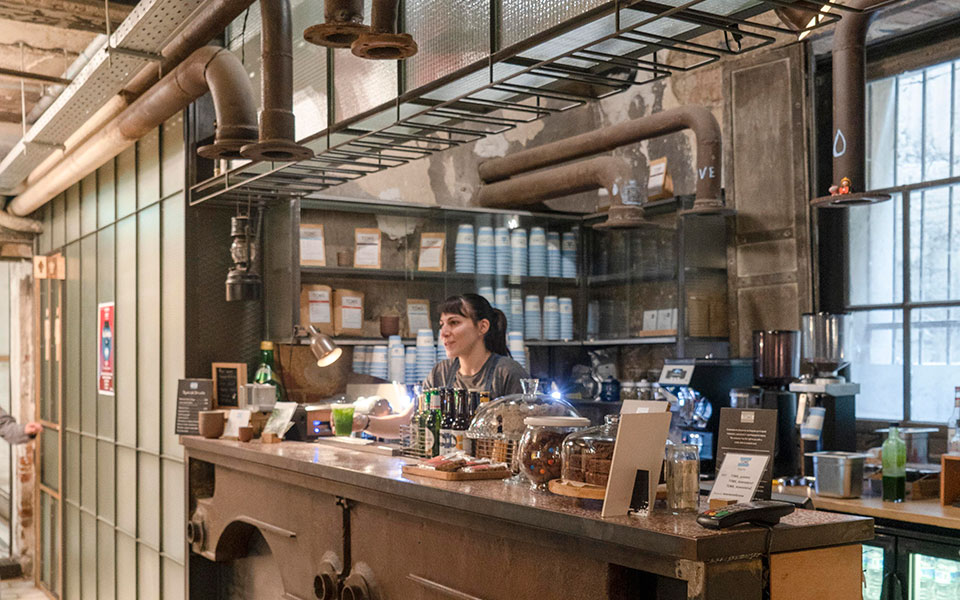
© Perikles Merakos
As Seen on Tv
It should not, therefore, come as a surprise that in the last three years, the city has attracted the attention of the international media. From an episode of “Rick Stein’s Long Weekends” on the BBC, which explored the city’s gastronomy, to Lufthansa’s inflight magazine, which featured on its cover George Zongolopoulos’ iconic sculpture “Umbrellas” on the Nea Paralia (New Waterfront), Thessaloniki has been the focus of several special issues and reports.
This year, Gil Hovav, Israel’s well-known TV presenter, came to shoot an episode of his “Open Skies” series in the city. The crew of Russia-1, one of that country’s most popular TV channels, used Thessaloniki as a location for one of Russia’s most-watched morning shows. Seth Sherwood of the New York Times urged his readers to “Forget your swimsuit and leave your copies of Plato and Socrates at home” as he gave them tips on how to spend 36 hours in Thessaloniki.
Future Promise
The city’s renaissance is not just limited to tourism. At the moment, both the IT and gamification sectors in the city are going through a phase of rapid growth. More than 40 creative collectives are currently active. Among them are AddArt, consisting of animators, filmmakers, illustrators and screenwriters who organize everything from activities for refugee children to the Animation Film Festival; and the Youth Nest, a collective encouraging collaborative creativity and networking among young people.
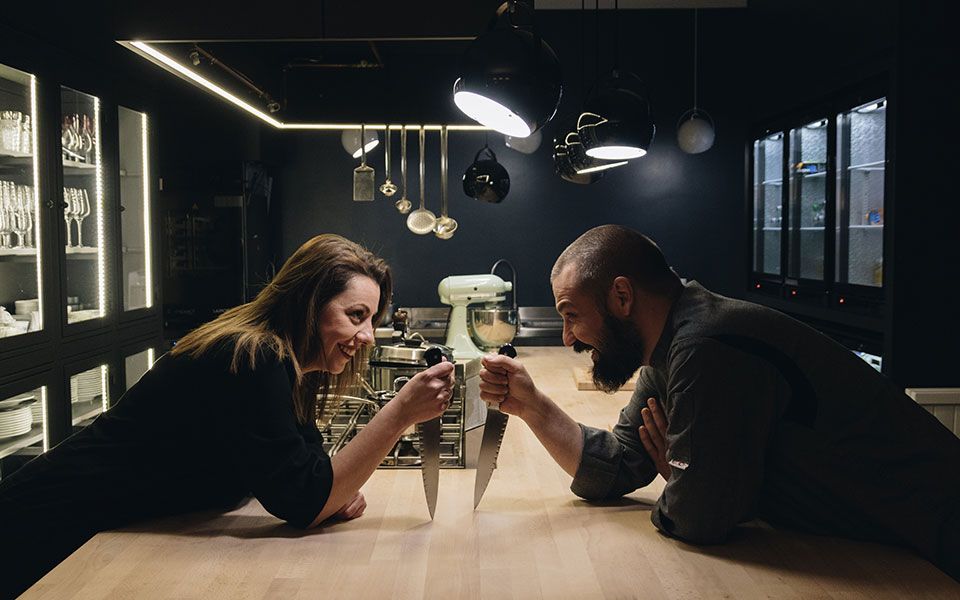
The transformation of Thessaloniki, which began about five years ago, is not yet complete. Several major projects are still ongoing, including the city’s new 13-stop subway system, whose pilot launch is scheduled for 2019. The subway, which will serve 250,000 passengers daily, will bring a great change to the quality of life and to the image of the city – one needs only to imagine the city center with 63,000 fewer vehicles to get a picture.
The modernization of the airport by its new operator, Fraport Greece, has begun and will be completed in 2021. The new terminal is already under construction, and among the other scheduled works is the remodeling of the old airport and increasing the number of check-in desks. Early in 2019, the major Modiano Market urban renewal project will be launched, and work will begin on the construction of the Holocaust Museum, a tribute to the city’s Jewish history.
Thessaloniki is a timeless city with an eternally youthful spirit that will continue to provide unique experiences and memories for future generations from across the world.

